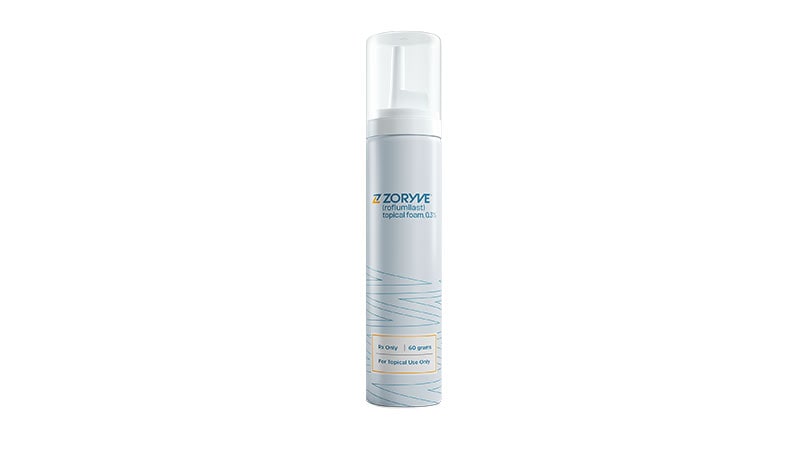Watchdog Group: Remove ALS Drug Relyvrio From Market Now
The watchdog group Public Citizen is calling for the prompt removal of the amyotrophic lateral sclerosis (ALS) drug sodium phenylbutyrate/taurursodiol (Relyvrio) after it failed to meet primary and secondary endpoints in top-line results from a phase 3 trial.
As reported by Medscape Medical News, Amylyx Pharmaceuticals announced the results on March 8.
"We are surprised and deeply disappointed by the PHOENIX results following the positive data from the CENTAUR trial," the drug company's co-CEOs Justin Klee and Joshua Cohen said in the statement. The company went on to state that it would discuss options with the US Food and Drug Administration (FDA), including potentially voluntarily withdrawing the drug from the market.
The US FDA granted accelerated approval to Relyvrio in September 2022 on the basis of a single phase 2 trial. That followed an initial rejection by an advisory committee panel that was later reversed in a rare second panel review.
The findings in the phase 2 study, along with testimony submitted by more than 1300 patients with ALS, advocates, and clinicians, seemed to be enough to sway the advisory panel to reverse its earlier decision.
Public Citizen's Health Research Group urged against the approval in 2022 and is now calling for a quick withdrawal of Relyvrio. "If the manufacturer does not promptly remove the drug from the market, the FDA should require that the drug be removed, said Robert Steinbrook, MD, director of Public Citizen's Health Research Group, in a statement.
"The drug should be withdrawn," said Caleb Alexander, MD, professor of epidemiology and medicine, Johns Hopkins Bloomberg School of Public Health Center for Drug Safety and Effectiveness, Baltimore, Maryland.
Alexander twice voted against approval as a member of the FDA's Peripheral and Central Nervous System Drugs Advisory Committee.
"I'm sorry to see these results, but I don't think they're terribly surprising," he told Medscape Medical News. "The evidence regarding this drug's efficacy was not terribly convincing from the start, and it was only through a variety of somewhat tortured analyses that this product made it across the line in the first place," he said.
Public Citizen said that when it came to the approval of Relyvrio, "the FDA capitulated to strong pressure from patients and advocates, many with ties to Big Pharma."
"It's important to listen to patients, but at the end of the day, those views should not necessarily be determinative because the FDA's responsibility is to follow the science and make decisions based on whether a drug is safe or effective," Steinbrook told Medscape Medical News.
Alexander said he wasn't sure how much influence patient advocates had on the approval. "This product also had some fairly strong cheerleaders within the FDA itself," he said. However, the involvement of the advocates is "an important question," he said.
He pointed to the FDA's process in granting accelerated approval to the Alzheimer's therapy aducanumab in 2021. It was broadly pushed by patient advocates and then abandoned by its manufacturer, Biogen, in 2022 when Medicare refused to cover the therapy. The agency's management of aducanumab "set an unfortunate precedent, which has led the FDA to be under enormous pressure to demonstrate similar leniency with other products," he said.
As of press time, one of the organizations that was most tied to the push for Relyvrio's approval, I Am ALS, had not issued a public statement. Repeated calls to the organization's Washington, DC-based headquarters were met with a busy signal.
According to Amylyx, some 3900 American patients are currently taking Relyvrio. The drug costs a reported $158,000 per year. For the year ended December 31, Amylyx reported net revenue of $381 million, primarily from US sales of Relyvrio.
It's not clear how thousands of patients would be taken off Relyvrio.
"The logistics of this require rather rapid discussions between the FDA and the company and the clinicians who are treating patients," said Steinbrook. "That doesn't take away from the general point that if the drug is not helping patients, it should be removed from the market," he said.
Alexander said that the "legal and regulatory complexities of the withdrawal of the product were greatly oversimplified" by the FDA and Amylyx at the advisory committee meetings.
Relyvrio's failure to prove effective does not necessarily indicate a flaw in the FDA's process, he said.
"This is one particular issue regarding one particular product," said Alexander. "The FDA will continue to have to work to balance access with evidence of safety and effectiveness."
Alicia Ault is a Saint Petersburg, Florida-based freelance journalist whose work has appeared in publications including JAMA and Smithsonian.com. You can find her on X @aliciaault.


 Admin_Adham
Admin_Adham


